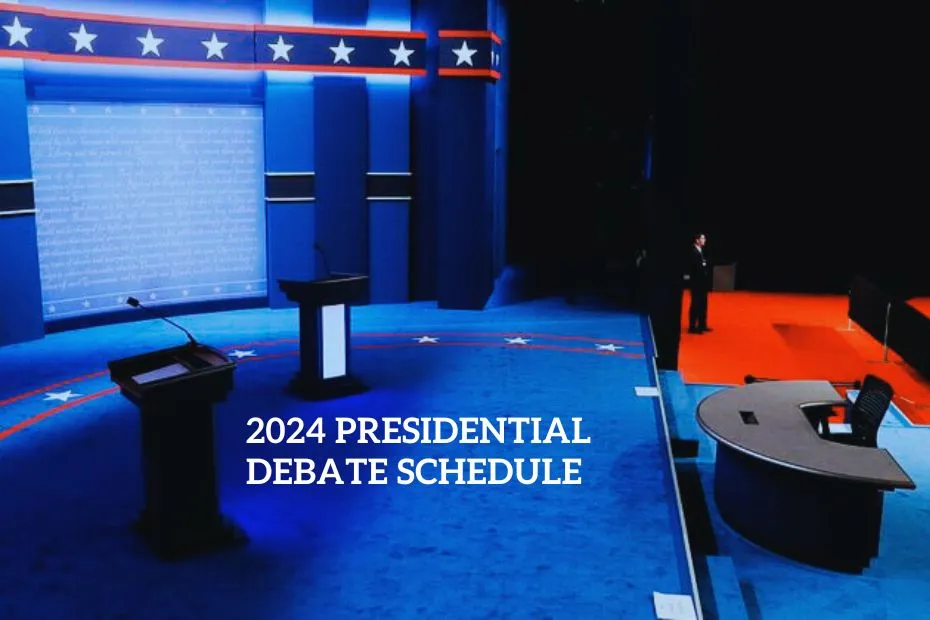Importance of Debate Dates: Presidential Debate Dates

Presidential debates are a cornerstone of American democracy, providing voters with a direct comparison of candidates’ policies, personalities, and approaches to governance. The timing of these debates significantly impacts the election cycle, influencing media coverage, voter engagement, and campaign strategies.
Influence on Media Coverage and Public Discourse
Debate dates act as catalysts for heightened media attention and public discourse. The weeks leading up to a debate are marked by intense scrutiny of candidates’ positions, past statements, and campaign strategies. Media outlets devote extensive resources to covering these events, analyzing every word and gesture of the candidates. This intense media focus drives public conversation, shaping the narrative surrounding the election and influencing voter perceptions.
Strategic Implications for Candidates, Presidential debate dates
Debate scheduling presents both opportunities and challenges for candidates.
- Early debates allow candidates to introduce themselves to a broader audience and establish their key policy priorities.
- Later debates provide a platform for candidates to address emerging issues and respond to their opponents’ attacks.
The strategic implications of debate scheduling extend beyond the events themselves. Candidates carefully plan their campaign activities to maximize the impact of the debates. They may schedule rallies or press conferences in the days leading up to a debate to generate momentum and shape the narrative surrounding their participation.
Impact of Debate Dates on Public Opinion

Presidential debates are a crucial component of the electoral process, providing voters with an opportunity to directly compare candidates and their policy positions. The timing of these debates can significantly influence public opinion and ultimately impact the outcome of elections.
Factors Influencing Debate Impact
The impact of debates on voter preferences is influenced by several key factors, including:
- Media Coverage and Public Attention: Debates receive widespread media coverage, generating significant public attention. This heightened exposure can solidify existing opinions or introduce new perspectives, shaping voters’ perceptions of candidates.
- Debate Performance: A candidate’s performance in a debate, including their ability to articulate their positions, respond effectively to challenges, and connect with viewers, can significantly impact public opinion. A strong performance can boost a candidate’s image and increase support, while a weak performance can lead to criticism and potential loss of support.
- Pre-Debate Public Opinion: The pre-debate public opinion landscape plays a crucial role in shaping the impact of debates. A candidate with strong pre-debate support may see their position reinforced by a positive debate performance, while a candidate struggling for support may need a strong performance to significantly shift public opinion.
- Post-Debate Media Analysis: Post-debate media analysis and commentary can further influence public opinion. Media outlets often provide detailed analyses of debate performances, highlighting key moments and offering interpretations that can shape voters’ understanding of the event.
Shaping Public Perception
Debates can shape public perception of candidates and their policies in several ways:
- Introducing New Issues: Debates can introduce new issues to the public discourse, raising awareness and prompting voters to consider previously overlooked topics.
- Clarifying Candidate Positions: Debates provide a platform for candidates to clarify their positions on important issues, offering voters a more in-depth understanding of their policy stances.
- Highlighting Candidate Differences: Debates highlight the differences between candidates on key issues, allowing voters to compare their policy proposals and make informed decisions.
- Assessing Candidate Character: Debates provide voters with insights into the character and temperament of candidates, offering a glimpse into how they handle pressure and respond to challenges.
Impact on Different Demographics
The impact of debates can vary across different demographics and voter groups. For example:
- Undecided Voters: Debates can have a significant impact on undecided voters, providing them with the information they need to make a decision. Debates can sway these voters towards one candidate or the other, depending on the performance and messaging of the candidates.
- Partisan Voters: Debates are less likely to significantly shift the opinions of partisan voters, who often have strong pre-existing preferences for a particular candidate. However, debates can reinforce existing views and mobilize partisan voters to turn out at the polls.
- Issue-Oriented Voters: Debates can be particularly influential for issue-oriented voters, who are motivated by specific policy positions. These voters may be swayed by a candidate’s stance on a particular issue or their ability to articulate a compelling policy proposal.
The presidential debate dates are a crucial part of the election cycle, offering voters a chance to hear directly from the candidates. These events often draw a massive audience, and the role of the moderator is vital in ensuring a fair and informative discussion.
One prominent figure who has moderated these debates is David Muir , whose insightful questioning and ability to keep the conversation on track have earned him respect in the field of journalism. With the next election season approaching, we can expect these debates to be closely watched, and the moderators, like David Muir, will play a significant role in shaping the conversation.
While the nation eagerly awaits the presidential debate dates, we can’t forget the impactful leadership happening at the local level. Take, for instance, Mayor Tiffany Henyard , whose dedication to her community serves as a powerful reminder that change can start from the ground up.
As we anticipate the national discourse, it’s essential to acknowledge the dedicated leaders working tirelessly to make a difference in their own cities and towns.
